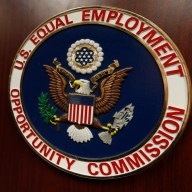
Back in high school biology, in between talks on Punnett squares and dominant traits, your teacher likely implied that your genetic destiny was fixed at birth. You got some genes from your mom and some from your dad, and that’s how you came along. But now, new information about genes has shown that they affect your life even after you’re out of the womb.
“Inheritance,” by Dr. Sharon Moalem, describes how the study of genetics has changed and what it might mean for the future of humanity. There have been numerous advances since the sequencing of the human genome, and an influx of new information has changed the way many scientists think about genetics.
“Now there’s the idea that you can change your genetic destiny,” says Moalem.
Take identical twins, for example, who share the same DNA yet can be unalike in many ways.
“What they do with that DNA in their life can be radically different,” Moalem says. “Exercise, for example, can trigger genes in your muscles.”
Similarly, smoking tobacco triggers certain genes that help in the breakdown of caffeine. This decreases the effects of caffeine on people who smoke, leading to another Starbucks run.
“There’s an interplay between our environment and what we do, what we eat, drink, that impacts our genes,” Moalem says. “How we play it is up to us.”
These new ideas have far-reaching implications. Take Angelina Jolie, for example. She discovered that she carried a BRCA1 gene that gave her a high chance of developing breast cancer. Her decision to have a double mastectomy all but eliminated her risk.
“She became a pre-vivor rather than a survivor,” Moalem says. “That’s a whole new class which never existed before.”
But as genetic screening like the one Jolie received becomes more common and less expensive, a world of new privacy risks opens up. There is no law in the U.S. preventing insurance agencies from denying coverage because of a genetic predisposition to a disease. Someone could, Moalem warns, swipe your coffee cup, hack your genome and expose information, not only about you but about your entire family, too. The idea of genetic discrimination offers a new kind of vulnerability.
“All of a sudden it’s exposure in an unprecedented scale,” Moalem says. “We have all this concern about identity theft — this is much worse.”
Further, as genetic screening becomes more common in prenatal care, parents might be able to make decisions about their children’s genetic makeup.
“We’re now screening for things we were never able to check for before,” Moalem says. “So if you don’t want to have a child with dyslexia, you can screen for that.”
The practice of eugenics — improving a human’s genes — might decrease human biological diversity. Screening against certain traits will limit the number of possibilities.
“The issue then becomes: Are we going to start selecting, as a society, against or for certain traits?” Moalem says. “We might be heading down the road toward sort of blunting human potential.”
















